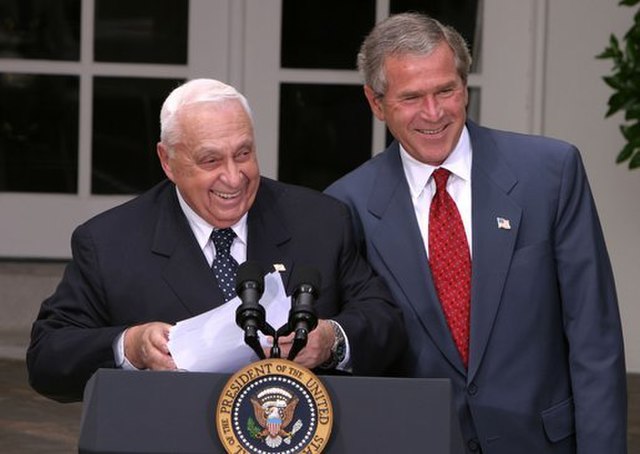Almost 18 years ago, in August of 2005, the late Israeli Prime Minister Ariel Sharon implemented the Disengagement plan, which not only entailed the full evacuation of every single Jew who had been living in the Gaza region, along with the destruction of their homes and livelihoods, but also the exhumation of Jewish bodies from local cemeteries.
The plan also required that all Jews living in Sa-Nur, Ganim, Kadim, and Ḥomesh – four communities located in the northern West Bank – be expelled from their homes. For all intents and purposes, the Disengagement was a euphemism for an act of ethnic cleansing against the territorial enclave’s Jewish community. Nevertheless, Sharon received accolades aplenty from political leaders around the world, all of whom offered celebratory remarks for taking such an “historic” and “courageous” step.
But to this day, far too few have come to recognize that the operation did not in fact completely sprout forth from the prime minister’s office in Jerusalem but rather from the White House.
The seeds were planted at the peak of the Second Intifada when the administration of former US President George W. Bush was launching its crusade for “democracy” in the Semitic region, invading Afghanistan and Iraq and subsequently installing vassal regimes in both countries to serve as clients of US empire.
This imperialistic campaign in the region also included the establishment of another unelected vassal state in the heart of the Jewish homeland. This specific project was publicly revealed in April 2003 with the release of the US “Road Map to Peace” initiative, which necessarily called for the creation of a Fatah-led Palestinian state by the year 2005.
In a most servile fashion, Ariel Sharon obeyed and ensured that this order would be carried out by the arbitrary deadline of 2005. In a letter addressed to President Bush in 2004, Sharon presented his Disengagement plan, acknowledging Israel’s “responsibilities” which included “limitations on the growth” of Jewish communities and the “removal of unauthorized outposts.”
Bush responded with a letter on his own, not only accepting the plan but committing to take an active role in making it a success. Since that “success” in the summer of 2005, hundreds more Israelis and Palestinians alike have been killed in endless cycles of violence from outbreaks of war to temporary ceasefires that hold only until the next inevitable war breaks out.
Nearly 18 years later, Israel’s current coalition – comprising factions which largely represent Israel’s more traditional and working-class sectors – have attempted to partially correct the historic injustice by repealing a portion of the Disengagement Law applying to the four destroyed communities in the northern West Bank.
Washington immediately responded by summoning Israel’s ambassador to the United States, Mike Herzog, to the US State Department. At a presser that day, the State Department Deputy Spokesperson Vedant Patel referred to Israeli attempts to correct the injustice as a “clear contradiction of understandings the Israeli government made to the United States.”
US Ambassador to Israel Tom Nides made similar remarks to the Israeli media, arguing that the bill to allow a Jewish return to the northern West Bank runs counter to what Israel had agreed to with President Bush.
The next day, in an implicit attempt to assuage US concerns over the bill’s passage, Israeli Prime Minister Binyamin Netanyahu (Likud) confirmed that “the government has no plans to re-establish” Jewish communities in the contested area.
The aforementioned diplomatic dialogue between US and Israeli officials demonstrates several key points.
One, the foreign policy agenda of the US in relation to the West Bank remains consistent and doesn’t change, regardless of whether the administration in the White House is Democratic or Republican.
Second, Israel continues to find itself in an unhealthy situation in which the United States and other foreign powers including the European Union and United Nations have for too long controlled Israel’s decision-making in the arenas of security and foreign policy. And while the most recent law may be a small step towards correcting an injustice, it barely holds any weight at all in improving facts on the ground.
Real change and reform can only be made when the State of Israel will choose an authentically independent path, one that prioritizes its own interests and needs. So long as Israel relies on the United States for $3.8 billion in weapons sales each year, the country’s leadership will continue to feel compelled to take into account the empire’s interests over the needs of its own citizenry.





